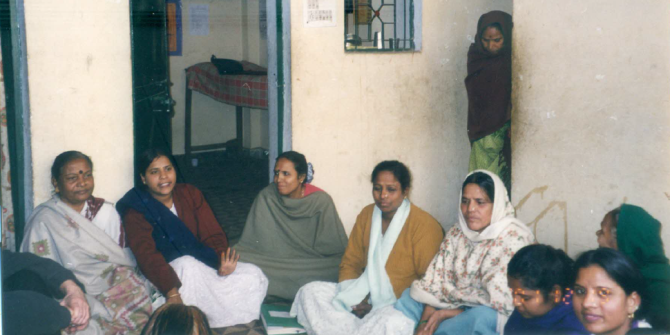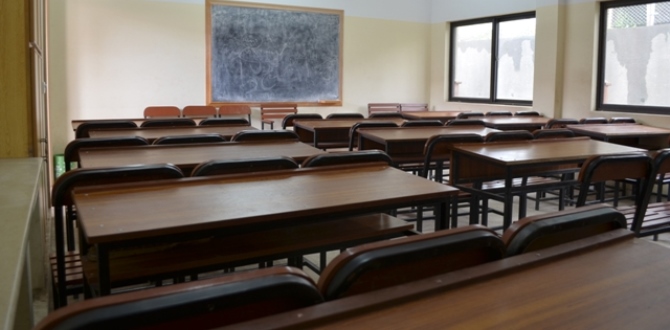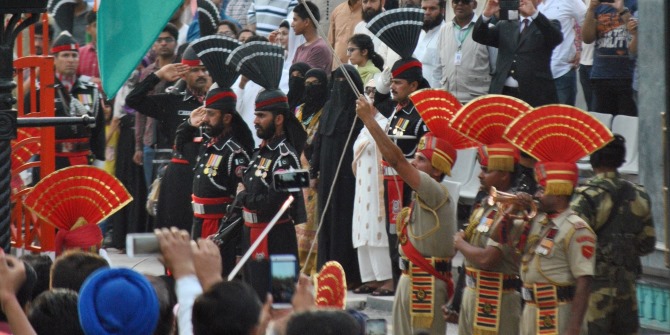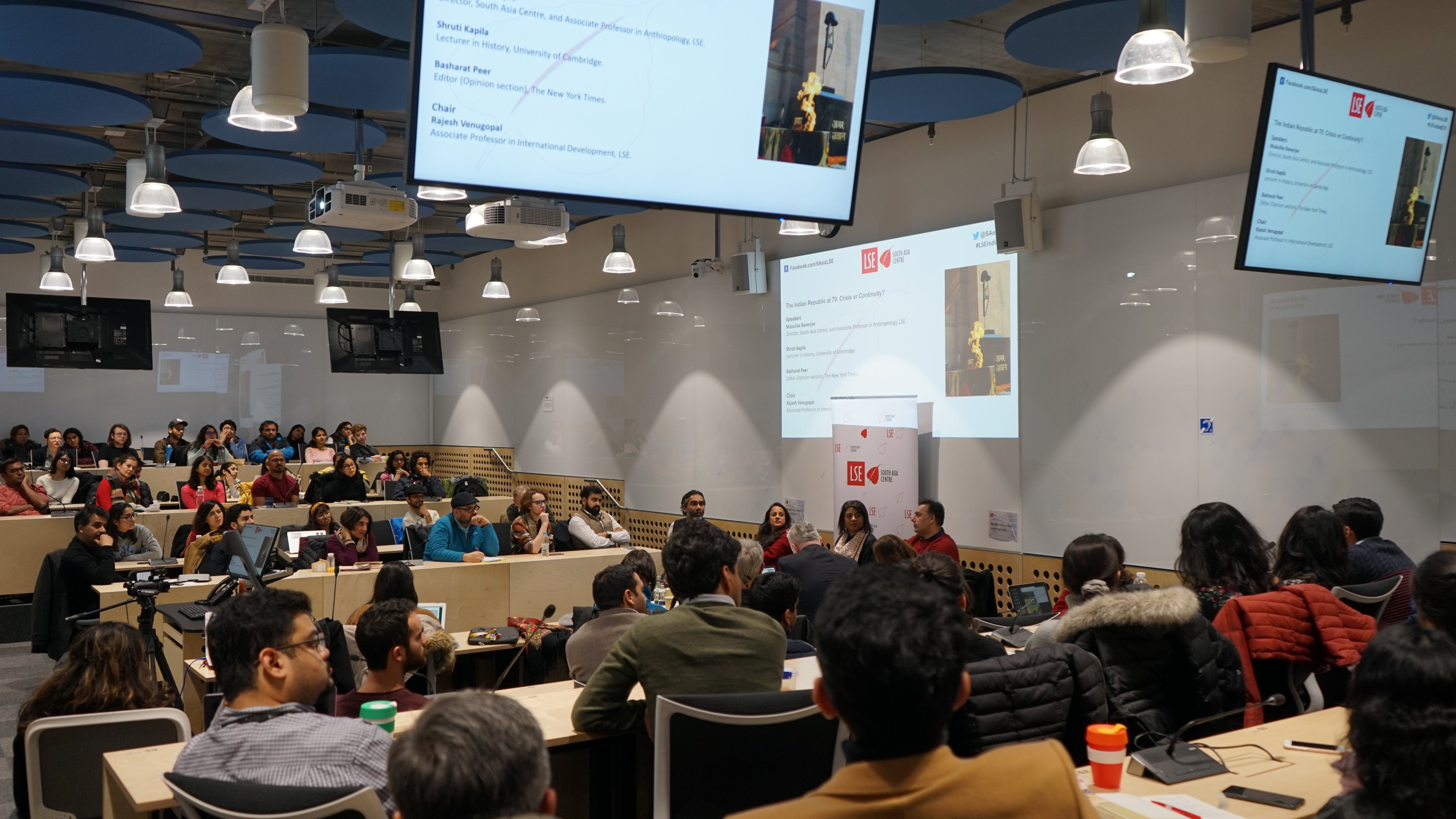 Following the murder of Mashal Khan on a university campus in northern Pakistan, Hamza Siddiq explores the link between Pakistan’s public education system and incidents of violence motivated by intolerance. He argues that in order to promote tolerance, the curriculum needs to be reformed to promote critical thinking and informed debate.
Following the murder of Mashal Khan on a university campus in northern Pakistan, Hamza Siddiq explores the link between Pakistan’s public education system and incidents of violence motivated by intolerance. He argues that in order to promote tolerance, the curriculum needs to be reformed to promote critical thinking and informed debate.
Pakistan is a country beset with complex social, economic and political challenges. While poverty, security and energy crisis are commonly cited as key issues, the fundamental problem concerns the decaying moral foundations of our society. Extremism, in multiple guises, has infected our societal conscience fueling widespread polarisation and division. This is manifested not only in the scourge of domestic terrorism but increasingly in a growing sense of intolerance toward the ‘other’. From violence against religious minorities and antagonism toward linguistic diversity to murder in the name of blasphemy, like that of Mashal Khan at Abdul Wali Khan University last month, intolerance of dissent is at the heart of the problem. While the current state of extremism stems mainly from certain geopolitical policy choices, the role of public education in fostering proclivity for intolerance is undeniable. The link between Pakistani curriculum and extremism, however, is poorly acknowledged, if at all, by local policymakers.
Pakistan faces an education crisis of unprecedented proportions. A recent report by Alif Ailaan “25 Million Broken Promises” says there are currently 25.02 million boys and girls between the ages of 5 and 16 who are not in school. From a meagre adult literacy rate of 57 per cent, inadequate resource provision and inefficient utilisation to teacher absenteeism and poorly-designed curricula, the challenges confronting our education sector are profound (Express Tribune). While most of the discussion concerning quality of education focuses on low economic returns, the other implications for society such as rising intolerance are woefully under-investigated.
We often assume it is predominantly uneducated and illiterate persons that engage in violent acts of intolerance. But recent episodes, including Mashal Khan’s murder, the 2015 Safoora Goth massacre and the case of university student Noreen Laghari who joined ISIS, have involved educated youths as perpetrators of heinous crimes which begs questions around the content and quality of public education and how far it equips young people to be active and fulfilled citizens. What is going on? As Albert Einstein noted; education is not the learning of facts, but the training of the minds to think. Unfortunately, the current approach to education in Pakistan suppresses critical thinking and incentivises rote learning in a number of ways. The present system of exams, for instance, is based on memorisation without any emphasis on comprehension, independent thinking or analytical skills. Moreover, students are generally discouraged to ask questions and challenge authority.
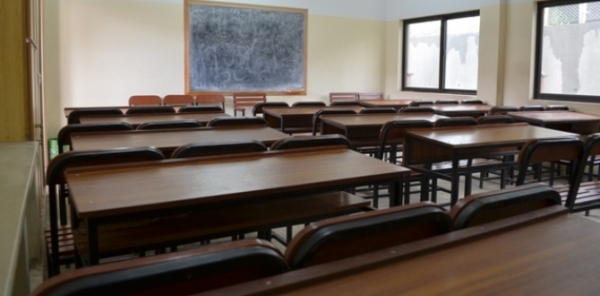
I was rather in denial about the extent of the crisis until I took a teaching position as a visiting faculty at the Institute of Cultural Studies at the Punjab University, the largest public university in Pakistan. Having been trained in British-style education which prizes critical thinking, teaching a class which had never been encouraged to be critical was exceptionally challenging. Students lacked the basic understanding of how to structure an argument and more importantly, the idea that multiple perspectives and voices are needed to understand today’s complex problems was completely alien to them. For many, an argument essentially meant to engage in a fight. The lack of exposure to alternate viewpoints in academic environments early on fosters one-sidedness and rigidity in perspectives. It is not hard to see then why we as a nation are so ill-equipped to deal with diversity. A good education system should instill in its students the ability to rationalise, to question orthodox views, to consider and accept competing narratives. This promotes both open-mindedness and empathy and respect for difference in society.
Christine Fair, an expert on South Asia at Georgetown University, has conducted multiple studies highlighting a link between education and violent extremism. She shows how our textbooks systematically present a distorted portrayal of historical events and facts to reinforce a particular ideology and exclusionary national identity. That said, countries around the world including India, China and America use their curricula to indoctrinate national ideology, yet extremism is not such a pervasive issue in these countries. Does this mean the connection between curriculum and extremism is weak? Or is there something unique in the Pakistani curriculum which can explain the country’s current struggle with extremism?
A critical review of our textbooks reveal a few particularities that potentially fuel intolerant attitudes. For instance, history textbooks reinforce Islam as the primary force behind the creation of Pakistan, leaving little ideological space for religious minorities in a new homeland. Ayesha Jalal, an eminent South Asian historian, in her most influential academic work The Sole Spokesman challenges religion as Pakistan’s sole raison d’etre and instead stresses equitable political representation as the leading motivation underlying Jinnah’s movement. This perspective has been completely missing from our textbooks. Similarly, political economist Dr S. Akbar Zaidi laments how the 1965 war with India is blatantly presented as a big victory even though Pakistan lost terribly. Dr Madiha Afzal, Assistant Professor of Public Policy at the University of Maryland, reinforces the link between Pakistani textbooks and extremism in her research. Pakistani textbooks glorify armed jihad, she argues, by extoling warfare that occurred pre-Partition against armies of other religions and by glorifying these wars in the name of religion. Ayesha Jalal adds there is little or no mention of jihad al-akbar, or the greater war against inner forces which prevent man from becoming human in accordance with his primordial nature. When violent conflict is given the cloak of religion, violence in the name of religion is perceived as a moral duty.
The costs to society for this kind of learning have been tremendous. Thousands of innocent lives have been lost to religious-based violence across the country. In recent years, Pakistani Christian communities have been regularly targeted with violence (CNN, 2016). Dozens have been assassinated under the pretext of blasphemy including Salman Taseer, the liberal-minded governor of Punjab province who was shot dead by his bodyguard simply for daring to criticise blasphemy law.
The latest victim of this menace was Mashal Khan, a young student of Abdul Wali Khan University in Mardan. On 13 April Mr Khan was pulled from his room by a crowd of fellow students. The attackers shot Mr Khan twice, dragged his corpse through hallways, beat it with planks and stripped it naked. The fact that this incident took place on a university campus is particularly alarming. Universities and educational institutions are bastions for peace, reason and debate. The idea that education equips us with the ability to reason, to adopt non-violent approaches to our problems has been directly challenged by this horrifying murder. It shows that students in universities who have been socialised into intolerant and exclusionary worldviews for the major part of their lives cannot simply be de-radicalised by attending an institution of higher learning. Hence, the reform must begin at the primary level.
Extremism is a deeply complex and multi-faceted issue having wider social, ideological and political roots. Counter-extremism strategies that focus predominantly on physical or military action fail to capture the complexity of the crisis we face today. Education can be critical to curbing the evils in our society but this can only be achieved with quality content and pedagogy. Schools and universities should encourage students to be open minded and flexible. Teaching style and course design should provide students opportunities to engage with objectionable ideas through reason and debate. Humanities and social sciences must be more widely taught as they teach how to think creatively and critically, to reason, and to ask questions. In an increasingly complex world we cannot restrict ourselves to circles populated by those who look and sound like ourselves.
About the Author
 Hamza Siddiq holds a graduate degree in Anthropology & Development from the London School of Economics & Political Science. Currently, he is a lecturer in International Development for the University of London International undergraduate programme in Lahore, Pakistan.
Hamza Siddiq holds a graduate degree in Anthropology & Development from the London School of Economics & Political Science. Currently, he is a lecturer in International Development for the University of London International undergraduate programme in Lahore, Pakistan.



